In the fourth of an thirteenth (and wildly popular) series, we interview some of the most talented up-and-coming Sommeliers in Ontario. A few years back I was flicking through the pages of a locally published periodical and noticed that when it came to Sommeliers it was the same names that seemed to pop up over and over again. I was also becoming gradually cognisant of the fact that we more established wine folks were well and truly “losing our edge” to these young blood Sommeliers. Being well aware of the depth of new talent that was out there I finally decided to get together with a couple of fellow Toronto Sommelier “Old Guard” (Anton Potvin and Peter Boyd) to assemble a line of questioning that would give us an entertaining insight into the minds of these rising stars.
This episode stars none other than Jonah Palmer, who currently works as Sommelier at George, Toronto.
Good Food Revolution: So Jonah, what is it that you are doing these days?
Jonah Palmer: I’m currently working as a sommelier at George. It’s the dream: Selling wine with very little paperwork or management.
GFR: And what kind of experience and training did you have before doing what you do today?
JP: Several years ago, I was a server putting myself through university, so I had a little bit of wine exposure through my work. But like most servers, I had no idea how much I didn’t know. I was fortunate enough to serve at the same restaurant that Master Sommelier Bruce Wallner was working at the time, and got interested in wine through his tutelage and tastings which would eventually become the Sommelier Factory. We both moved on from that restaurant, but Bruce thought I had good potential and insisted I join in a program he was running focused on preparing students for sommelier certification with the Court of Master Sommeliers. I was fortunate to have a very good teacher in Bruce and a very accommodating employer in Ortolan—I had my nose in books every moment possible during that time, including during service—and I was able to go from a very weak wine background to becoming certified sommelier in less than six months.
GFR: You have worked in a number different types of places… how did they compare?
JP: George is classic fine dining service. Very refined, with hierarchical structure and precise steps of service in a beautiful dining room. Colette very similar. Luckee was more laid-back but still a Susur Lee restaurant. I’ve never worked somewhere with such diverse clientele—hotel expense accounts; King Street bro-squads; and people from all over the GTA, Hong Kong, China, and the rest of the world there to try Susur’s twist on traditional Cantonese. Ortolan had the least traditional restaurant environment by far, but in the best of ways. It was casual, but with attention to detail was there where it matted: warm plates, crumbing and resetting between courses, and the food and wine menus were built around each other organically.
GFR: How open do you find the clientele to trying new things when it comes to wines?
JP: Gen X and especially Boomer Torontonians are pretty conservative when it comes to wine. But it’s not their fault: The LCBO doesn’t exactly focus on new frontiers (or old frontiers that are new again) when it comes to its wine offerings, so as restauranteurs we’re the ones who have to make introductions. If we do it tactfully, we create guests who get more and more excited about trying new wines. If we push novice wine-drinkers onto the $120 bottle of wacky natural gamay that we happen to love, we’re probably going to alienate guests and lose their trust in not just us, but all sommeliers. Millenials tend to be open-minded.
GFR: Now, how do I word this? Have you drunk the Natural Wine Kool Aid? I’m just kidding, how do you feel about the scene?
JP: I love natural wine when it’s tasty. But I prefer that quality-in-the-glass trump zealotry. If your wine needs intervention to save it from becoming a science project, I’d prefer you intervene. But more and more natural wine producers are showing that natural wines can be made well so I hope the trend continues. I’d love to be at a point where super-natural intervention becomes unnecessary, but not every producer is there yet. The best ones though, they’re making magic.
GFR: What makes for a good agent/supplier in your mind?
JP: Adequate warning of impending disaster.
GFR: GREAT ANSWER!
And what makes for a bad agent?
JP: Besides the opposite of the above, I hate pushy sellers.
GFR: How do you feel about Canadian wines? Any current favourites?
JP: They definitely deliver when it comes to premium cool-climate wines. I’m a huge Prince Edward County fanboy, including Norman Hardie, Grange of Prince Edward, Rosehall Run, Hinterland, Closson Chase, Huff, and The Old Third. Lots in Niagara too, but I’ll skip the usual suspects and give shoutouts to the newbies: Big Head, Pearl-Morissette, Westcott, and Leaning Post.
GFR: What do we do well in Ontario, in your mind, and for your palate?
JP: Chardonnay and Riesling are obvious, but I’m actually most excited about sparkling wine. Sparkling in Ontario is still in its infancy, but the terroir is there. Henry of Pelham was one example of greatness, producers like Hinterland and Huff proved that that greatness wasn’t a fluke, and newcomers like Big Head and Rosehall Run are just more evidence. In twenty years I think Ontario will be widely recognised as one of the world’s great sparkling regions. Reds don’t show the consistent quality that our whites and sparkling do, but certainly we make some great Pinots and Cab Francs. Gamay is what I’m most excited about though. From fruity and gluggable to structured and Morgonesque, I’ve enjoyed almost all of it.
GFR: And what do you feel we should give up on?
JP: Appassimento wines, and the vines that struggle to stay alive during our winters. I’ve loved Ontario wines from Syrah and Semillon and so on, but winemaking needs to be sustainable.
GFR: Just as there is from everywhere in the world, there is quite a lot of dreadful wine coming from Ontario also. How do you feel about the issue of people simply promoting something because of it being local, and not because of its quality?
JP: I do think it’s a big problem and one we have to overcome if we want to enter the world market. Ontario is never going to be able to compete with the likes of Chile and Australia when it comes to $10 wines, so we shouldn’t try. But what we can do is compete with France at the $25-40+ range, so that’s what we should be pushing.
GFR: How aware of wine were you whilst growing up? Were you around wine from an early age?
JP: My mum consumed a bottle or two of wine per year, and my dad not at all. I didn’t start drinking it at all until my twenties.
GFR: Can you remember your first taste of wine?
JP: No, but I did have the occasional taste at a family dinner. I hated it. But I’m pretty sure I’d still hate those wines now.
GFR: When do you feel children should be introduced to the wonderful world of wine?
JP: A taste at the dinner table when they’re children. I’d prefer to teach them to drink responsibly before they learn how to drink from their peers.
GFR: When did you first decide that you would like a career in wine?… and was it with a view to being a Sommelier yourself?
JP: I started to study wine thinking it’d get me better serving jobs, but a sip of a Bonnezeaux convinced me to make wine my focus.
GFR: So who or what gave you your first insight into the world of wine?
JP: Bruce Wallner for sure. He gave a great staff training session (the tea one) that really helped me understand why wine is what it is, and introduced me to great wines which I had simply never been exposed to.
GFR: The Sommelier world is notoriously full of pretentious arseholes, and after seeing that film Somm I worry about the emergence of a new Bro culture… I’d love to hear your thoughts?
JP: The stiff-upper-lip, tastevin-wearing pretentious arsehole isn’t a thing anymore. Drinking good wine isn’t just for the wealthy anymore. Nor is working in wine just for old white men. There are probably more women than men of my generation working in wine. I love where the Sommelier world is headed.
GFR: Which wine regions have you had the opportunity to visit?
JP: Outside of Ontario and childhood visits, just Jerez and Madeira. Both are amazing and I’m certain I’ll return. The terrain around Jerez is a white desert moonscape that it’s hard to believe can support agriculture. And I love that the city truly is devoted to the wine industry there, but not in an outrageously touristic way that places like Bordeaux and Reims have a reputation for. Sherry is simply their way of life. Madeira has amazing dramatic landscapes of volcanic black stone, thrusting up from azure waters, that reaches into the clouds. It’s incredibly green and lush, with bounties of exotic fruit, and it’s people are proudly Madeiran. Both offer the opportunity to taste wines made before, say, World War II, which is such an amazing experience.
GFR: Have you ever made your own wine?
JP: Not yet.
GFR: And where would you like to make wine (in a pipe dream)?
JP: Jerez or Madeira. I like warm weather and the Old World way of life.
GFR: So do you prefer to manage people or bottles and why?
JP: More people than bottles. I love teaching, so staff training has always been a favourite of mine, and I pride myself on running a good service, which requires giving a little guidance. But I do appreciate the occasional afternoon blasting hip-hop in the cellar while I count bottles to hype myself up for a mind-blowing data entry session.
GFR: What have been your career highs and lows?
JP: Highs are definitely getting my Sommelier certification in such a short time, as well as meeting the wonderful people I have in the wine community. Low would have to be when Ortolan closed and I was no longer able to continue working there. Dan Usher and Damon Clements were the best employers I could ever hope to have. Steak and a glass of wine was not an usual staff meal, and our small team had amazing rapport. Those opportunities don’t come by often.
GFR: Who is, in your mind, a real role model for Sommeliers?
JP: This won’t surprise anyone who knows me, but Bruce Wallner for sure. Besides being an incredibly skilled and knowledgeable sommelier, he’s the best teacher the Toronto wine scene has ever known. He approaches wine without pretension and with a lot of humour and irreverence, yet he somehow runs a really sharp service.
GFR: And for Wine Agents?
JP: Debbie Shing at Mark Anthony, the Rodney Dangerfield of wine agents.
GFR: Do you have nightmares about working with wines? I do… regularly… and it usually involves being unable to find bottles in a cellar… and the clock is ticking away… in fact I had one last night!!! And I haven’t been in the role for over six and half years!!!
JP: I actually had my first service dream in years just last month, after working a wine event. My dream was about a remarkably mundane service.
GFR: Sommeliers famously have their Sundays off… What’s your idea of a perfect Sunday?
JP: At my cottage. My girlfriend and/or good friends, picnic lunch on the dock, swimming, hiking, grilling, and good drink.
GFR: Where are your favourite places to dine and drink.. perhaps tell us a hidden treasure of our city?
JP: Dan Usher’s The 47 has the city’s best bar food and Sherry on tap. Thoroughbred also puts out amazing food and has a great, well-priced list. Archive has the best selection of wines by the glass in Toronto, hands-down. Paese no longer has their downtown location but they also have a fantastic, affordable list.
GFR: Do you cook yourself? What’s your favourite dish to cook these days?
JP: Tons. I like cooking with humble ingredients and finding creative ways to make them work. All sorts of offal and off-cuts, pulses, and seasonal veg.
GFR: And have you had any cooking disasters recently?
JP: I experiment a lot, so a lot of things taste kinda lousy, but it’s been a while since any real disasters. Years ago, I cooked beef hearts for a first date once (at her request, strangely) and she literally gagged when she saw them, but I happily ate them and we ended up dating for a few months. Does that count?
GFR: Do you feel that there is a good Sommelier community in Toronto?
JP: Absolutely. Bruce Wallner’s Sommelier Factory was instrumental in developing the community to what it is today by raising the standards of expertise and putting sommeliers in touch with each other and with jobs. Jennifer Huether’s success in bringing Guildsomm events here has also improved the community tremendously.
GFR: Do you hang about with other Sommeliers?
JP: All the time. I’m a night owl and I love food and drink.
GFR: How do you feel about Toronto as a wine and cocktail city? Where do you go if you need to get your wine or cocktail on?
JP: For wine, Toronto is good, but there’s room for improvement. The LCBO monopoly is an enormous barrier to Toronto becoming a world-class wine city. It makes it difficult to access a wide variety of wines, particularly those which would like some aging before being consumed. We’re also one of the few places on the planet where restaurants effectively pay the same price for wine as consumers do—wholesale pricing is available only direct from Ontario wineries. And the skyrocketing cost of rent in the city further forces restaurants to raise prices, and it’s often more attractive for diners if the food prices stay low but wine prices increase.
That said, there are more and more restaurants running great wine programs and trying to make wine more affordable. The spots I mentioned previously all fit the bill, and places that offer half-price wine features like Edulis, Enoteca Ascari, or places like Archive or Midfield that simply price wine lower than everyone else go a long way.
For cocktails, Toronto is definitely world-class. Unlike wine, supply isn’t nearly as big of an issue, so bartenders have free reign to be as creative as they like. There are great programs at The 47 and Thoroughbred, as well as Harbord Room and any cocktail program that Moses McIntee has touched, like The Good Son.
GFR: What would you be doing if you were not doing what you are doing today?
JP: Professional poker player, cellar lackey, or cabana boy.
GFR: What are your thoughts on music in restaurants?
JP: Quiet and mellow. If you’re busy enough, just the chatter of conversation. If you’re a bar, sure, blast it, but not in a restaurant. Conversation is an important part of the restaurant experience.
GFR: Do you have a favourite food/wine related scene in a film/movie or show?
JP: This one…
GFR: I know that you have non-industry friends… how do they feel about what you do for a living?
JP: Obviously they’ve made poor life decisions with their work, so they feel a great deal of envy.
GFR: What are your thoughts on blind tasting wine?
JP: The deductive tasting exercise or the practice of tasting wines with an open mind? I really enjoy blind tasting with the purpose of identifying wines, but I feel that a lot of people place too much importance on it. There are great sommeliers out there who struggle to identify wines precisely. On the other hand, I’m a huge believer in the practice of tasting wines blind whenever possible. I’m notorious for forcing my friends to first taste blind when I bring a bottle to share. I don’t have much reverence for labels and no shame in liking what others don’t. I’d rather be delighted with something unexpectedly delicious than try to force myself to like something terrible just because it’s prestigious.
GFR: Are you a better blind taster with or without a bad hangover? I’m definitely the former…
JP: Without for sure. It’s hard to think clearly with a hangover, and good blind tasting requires thought, not just instinct.
GFR: What’s your current favourite wine region?
JP: Madeira. The wines have an insane amount of complexity and are the longest-lived on the planet. And they’re affordable too. Ontario is a terrible market for it, sadly.
GFR: In your mind, as an Sommelier, what is “hot” in the world of wine right now?
JP:Rosé. I have mixed feelings about this because there’s a lot of garbage rosé out there. Producers in places like Provence cruise by on their reputation while actually outputting largely a bunch of crap, and producers in the new world sometimes use rosé as a means to get rid of excess or low-quality red grapes. On the other hand, quality is getting better just about everywhere and more people paying attention to and drinking rosé is only going to make it better.
GFR: And what’s not so hot? What has fallen out of favour?
JP: Australian wines, which is a shame. The quality of the new guard of Australian wines is impressive. It’s not all Mollydooker anymore. And hell, Mollydooker is great value if you’re into that sort of thing.
GFR: When it comes to wine is there anything that you feel is overrated?
JP: Anyone who knows me knows that I have an opinion or seventeen about this, but I’ll be restrained. By consumers, California. By sommeliers, Provençal rosé. You’ll still publish this though, right Jamie?
GFR: What is your favourite wine pairing right now, something nice and seasonal?
JP: Good, firmly-structured rosé and grilled octopus.
GFR: Okay… three pairings with me on the spot?… this time with… Actors who have appeared in the Godfather films.
What would you suggest to pair for them wine or beverage-wise… and why?
1: Marlon Brando
JP: Viognier. In youth, undeniably exuberant and charming. With age, its flabbiness and other flaws really show.
2: Al Pacino
JP: Barbaresco. Astringent, almost harsh, yet highly charming. Ages slowly and gracefully, if not quite as well as its neighbour…
3: James Caan
JP: Imperial IPA. Amazing at first, but you rarely find yourself going back for another.
GFR: Do you often drink beers or spirits?
JP: I love beer, especially sours and just about every style of ale imaginable, especially if flavourful yet low-in-alcohol. I enjoy spirits less often than beer and wine because I find them a bit heavy, but do really enjoy Calvados, Scotch, good rum, and fruit eaux de vie.
GFR: What is your least favourite part of your job as a Sommelier?
JP: The hours. I’m fine with working late, long, or on weekends, but I hate having to flip back and forth between morning and evening starts, often back-to-back.
GFR: What is your weapon of choice when it comes to a corkscrew?
JP: I tried a Code 38 once and it was awesome, but I stick with whatever I can find with a straight blade.
GFR: And your thoughts on the Coravin system… has it changed the playing field?
JP: It’s not quite 100% consistent yet—some bottles hold beautifully for over a month, others are toast in a couple of weeks—but undeniably we’re able to offer more premium wines by-the-glass and I love that. I do a lot of solo travelling and often don’t want a whole bottle to myself so it’s nice to be able to have a glass of something special and offer the same to guests.
GFR: Speaking of which, where do you stand on the screwcap vs. cork debate? And how do your customers feel about that?
JP: Aluminum is great and all, but there’s nothing that replicates the feel of an authentic cork coaster. For wine, obviously I prefer screwcaps. It’s actually a big factor if I purchase a wine I plan to age, since it’s a lot more tragic to lay something down for years only to find it oxidised or corked. I prefer to buy wines under screwcap for restaurants as well, since they’re much faster and easier for servers to open, and corked wines during service just haemorrhage valuable time.
GFR: Due to us being around alcohol, many people in our industry often have quite the increased tolerance for wine/booze, or they develop issues. What is your limit and how do you keep yourself in check?
JP: I’m pretty lucky in that I both prefer lower-alcohol drinks and I’m just an inherently disciplined person when it comes to booze. I simply make a point of taking a couple days off per week and keeping the heavier sessions to a couple per month at most. I do a lot of cycling so I’m used to moderating my intake to make sure I can do so safely.
GFR: Have you ever been “cut off”? If so, where and when was the most recent time?
JP: Not since a house party in high school.
GFR: Speaking of which, do you have a good hangover cure?
JP: Besides the obvious like a lot of water the night before and the morning of, distraction is definitely the best one.
GFR: How many wines do you taste in a week?
JP: Probably a hundred during busy weeks, a dozen during slow ones.
GFR: When tasting with agents do you choose to spit or swallow?
JP: Spit unless it’s outrageously delicious.
GFR: What’s your “house” wine at home?
JP: I tend to collect 1-offs rather than cases, so it’s almost always different!
GFR: Most remembered glass of wine ever?
JP: That Bonnezeaux I had years ago. I was just blown away by how a beverage could be so complex, intense, and hedonistic, yet somehow delicate too. It was probably the first and last time I used “ambrosial” in a sentence. I wish I remembered the producer!
GFR: What is your perfect glass (or bottle) of wine at the end of a crazy day at work?
JP: Beer, Riesling, Vouvray, or bubbly.
GFR: And now the cheesy question Jonah… If you were a grape varietal which would you be? and why?
JP: Bacchus, because I was sired by a man named Peter and am frequently described as the God of Revelry.
GFR: Errrr… right then… Thank you for taking the time Jonah… and thanks for doing this.
Edinburgh-born/Toronto-based Sommelier, consultant, writer, judge, and educator Jamie Drummond is the Director of Programs/Editor of Good Food Revolution.
Peter Boyd has been a part of Toronto’s wine scene for over two decades. He has taught the Diploma level for the International Sommeliers Guild, and has been the sommelier at Scaramouche Restaurant since 1993. He also writes about wine, food and pop culture and raises show molerats for fun and profit. He’s also one of the most solid guys in the business.Trust this man. Seriously… he knows his shit and is slowly taking over this city. He just celebrated his 67th birthday!
A well-known and much respected figure on the Toronto food and wine scene for almost twenty years, Potvin has worked in many of the city’s very best establishments including Biffs, Canoe, and Eau. In 2004 Potvin opened his incarnation of the Niagara Street Café, a restaurant that has gone from strength to strength year after year, with universal critical acclaim. Anton spends much of his time traveling and tasting wine and has been ranked highly in consecutive years of the International Wine Challenge. Anton is now GM at DaiLo with Chef Nick Liu.

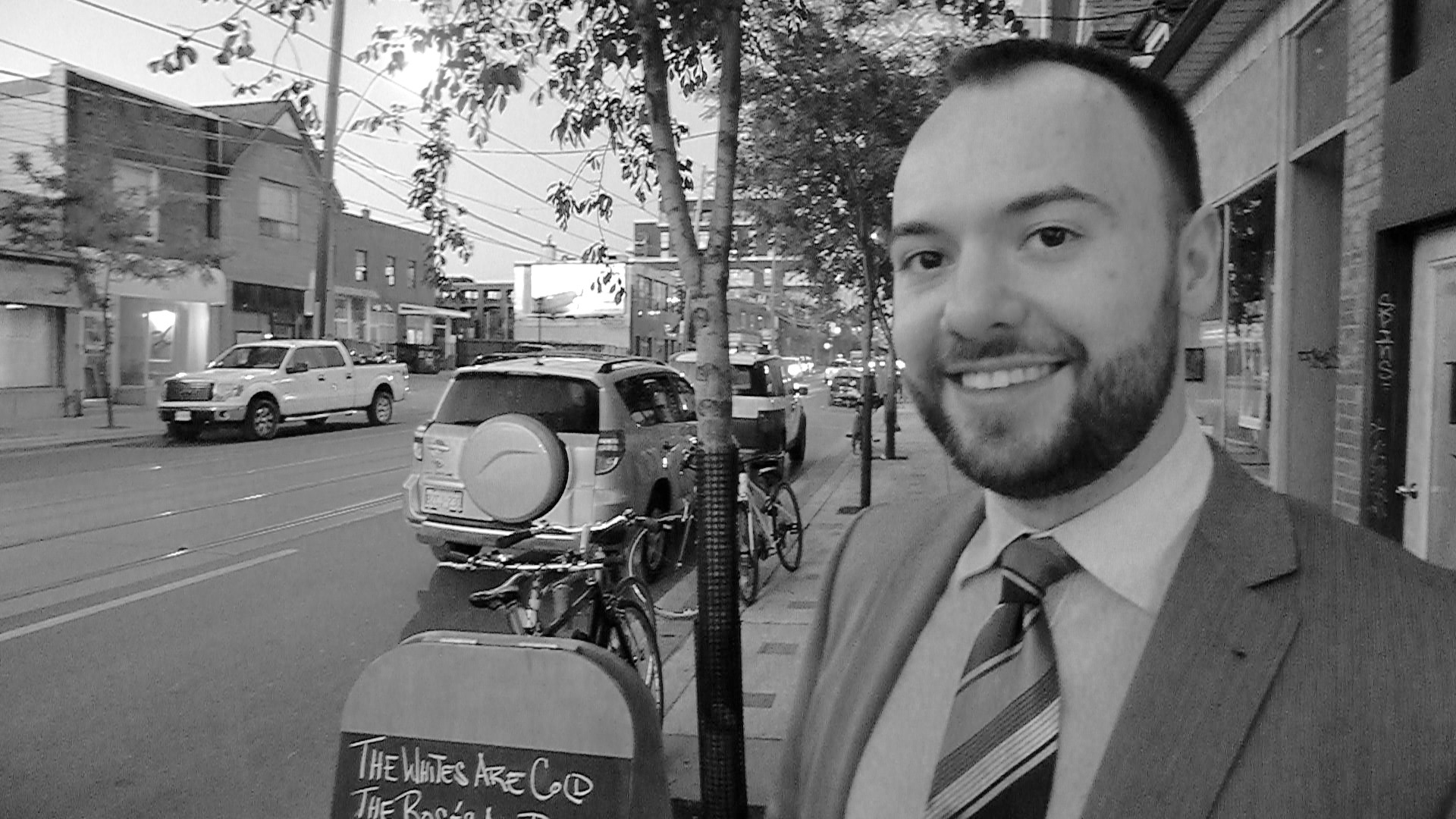
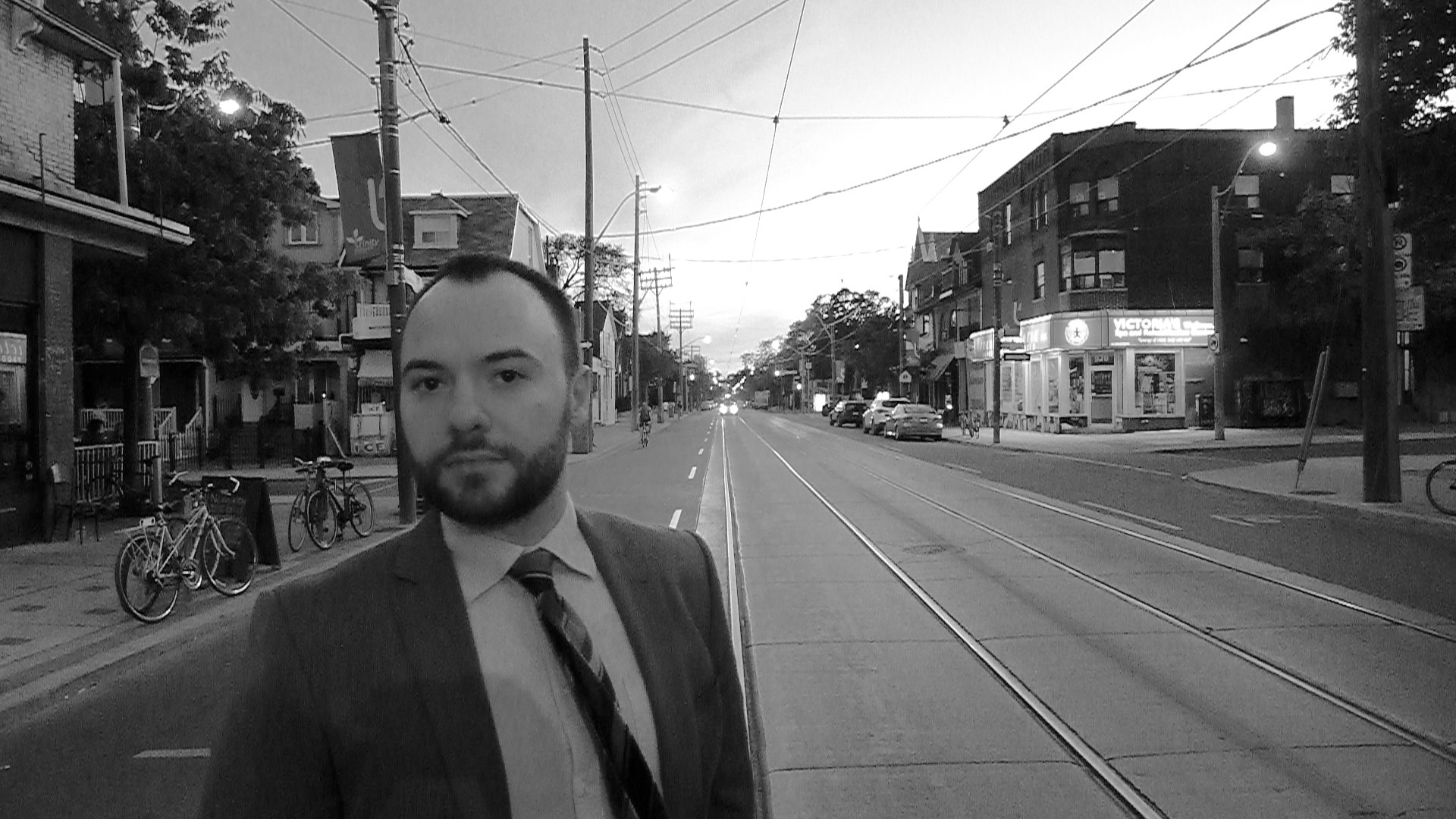
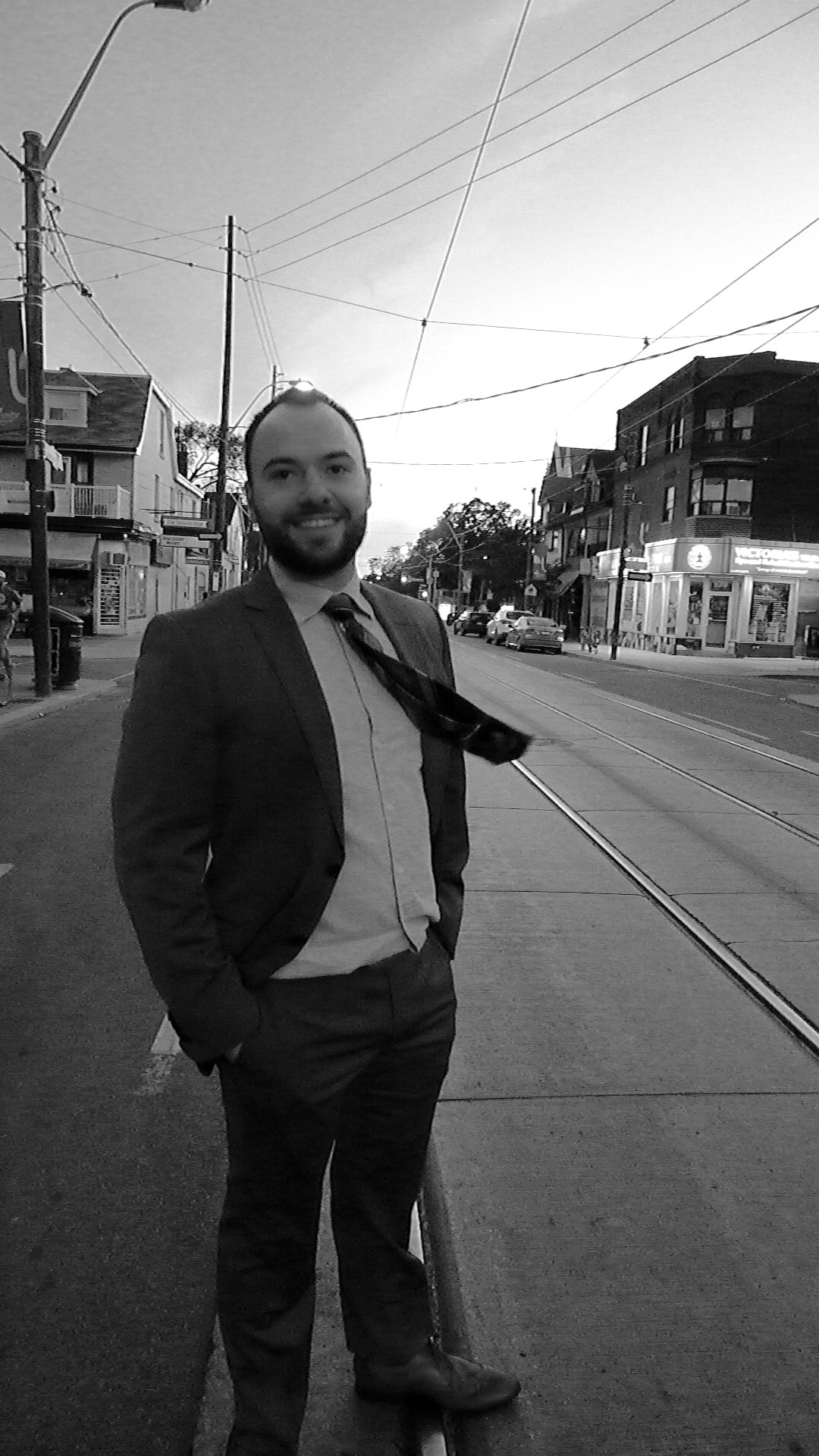
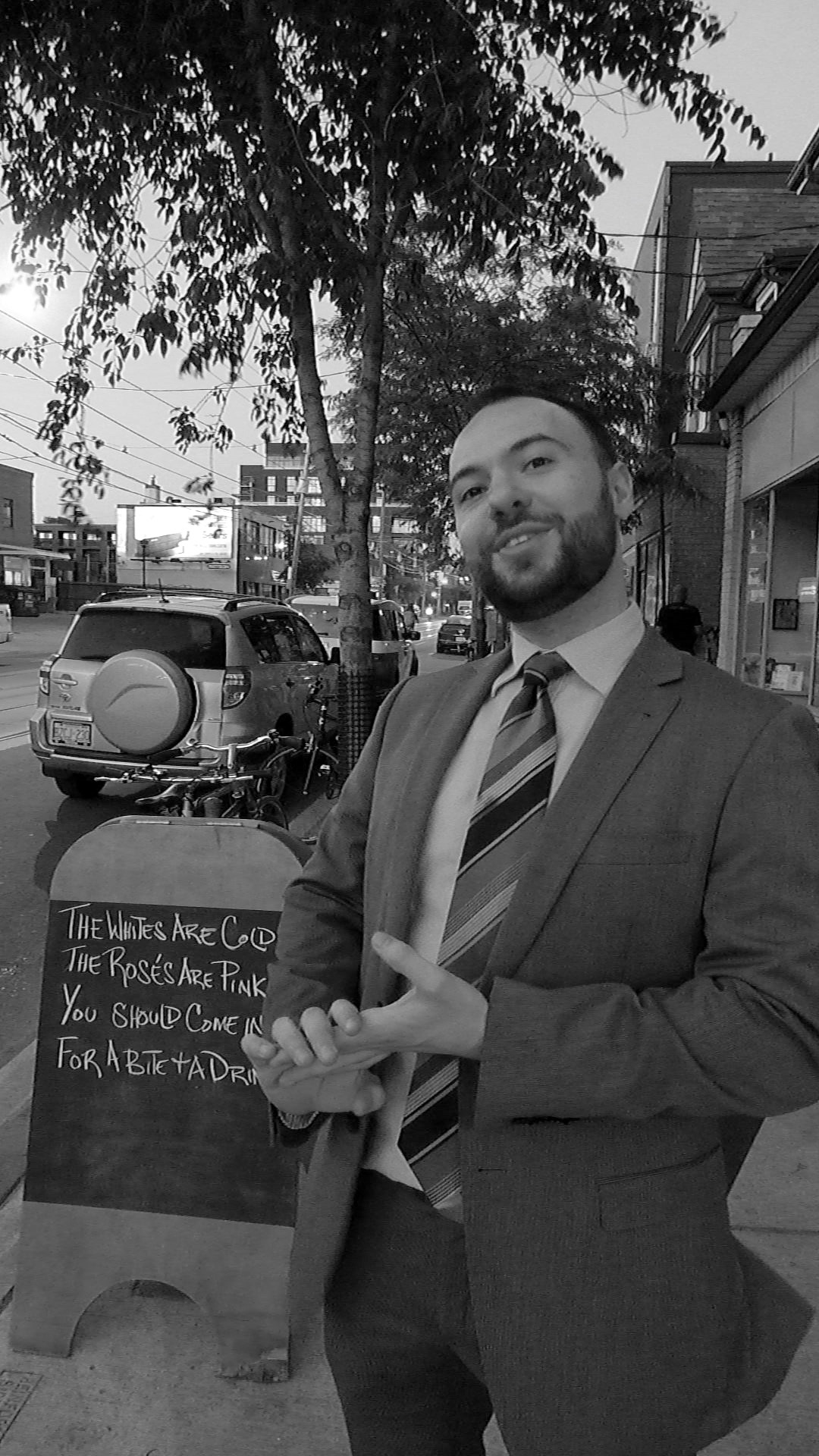

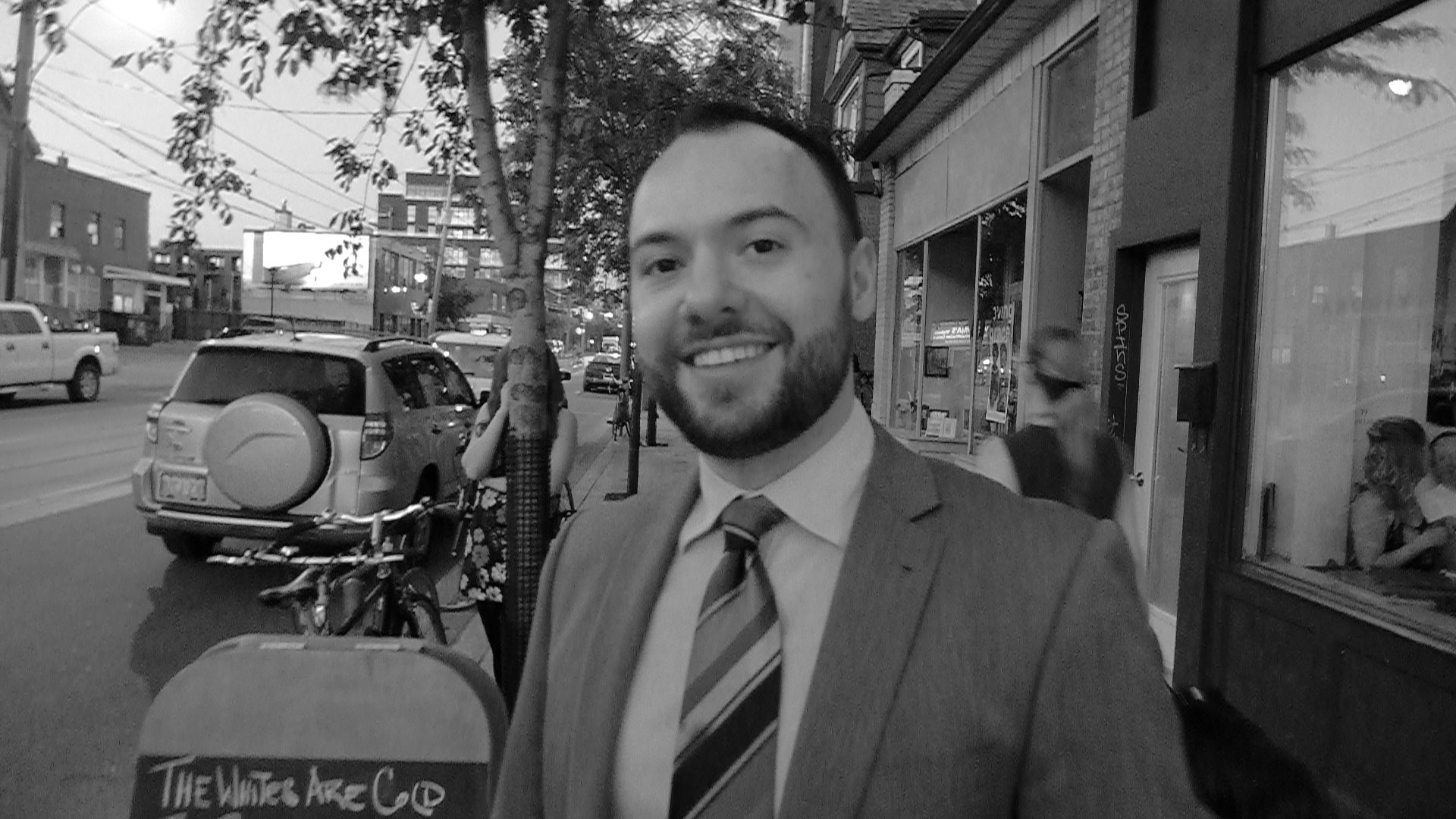
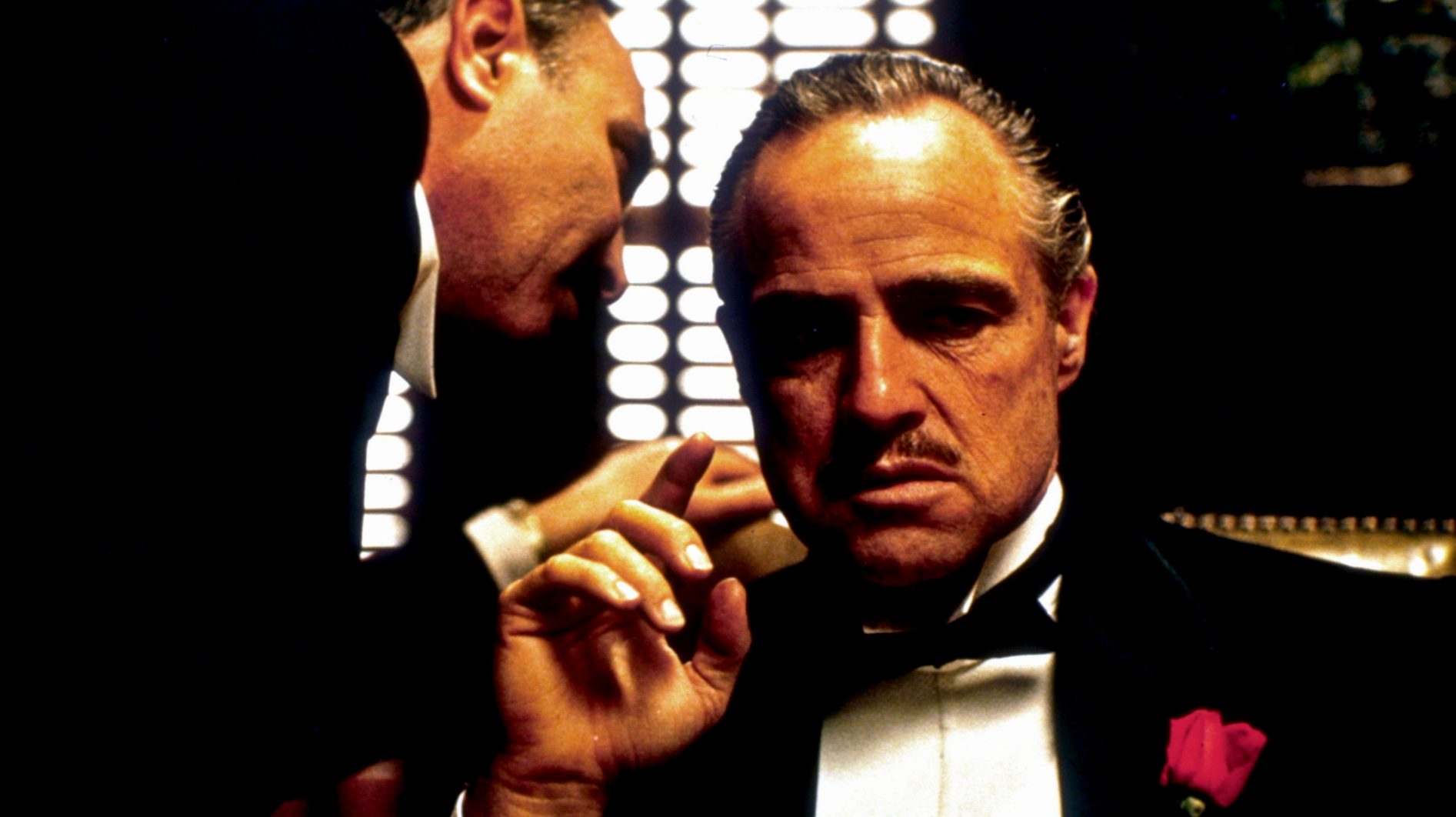
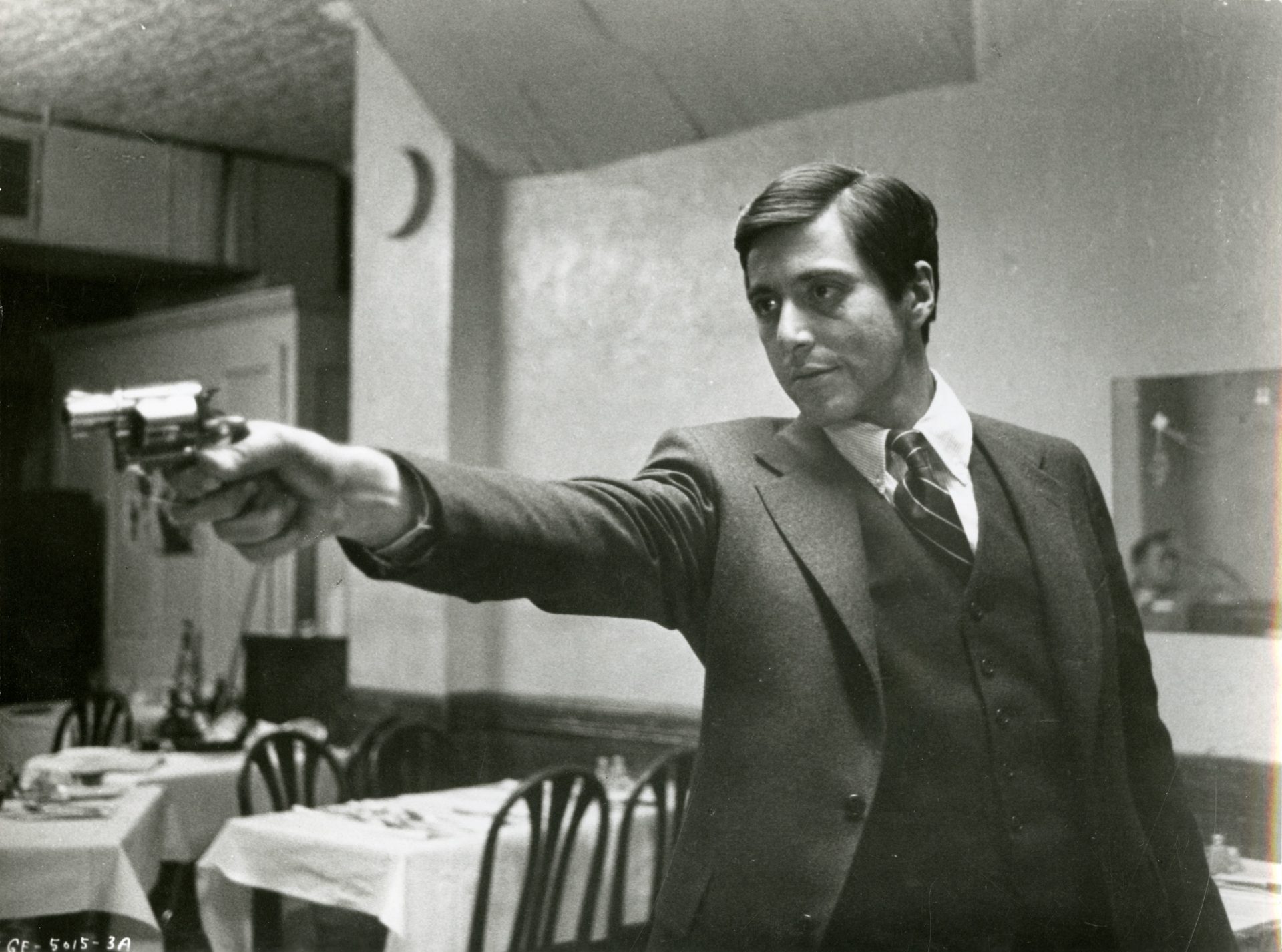

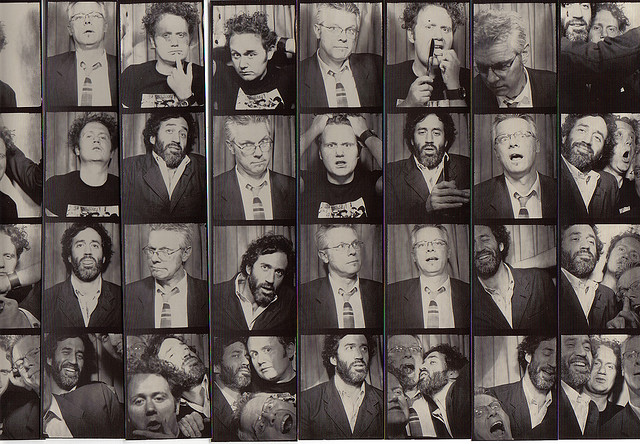



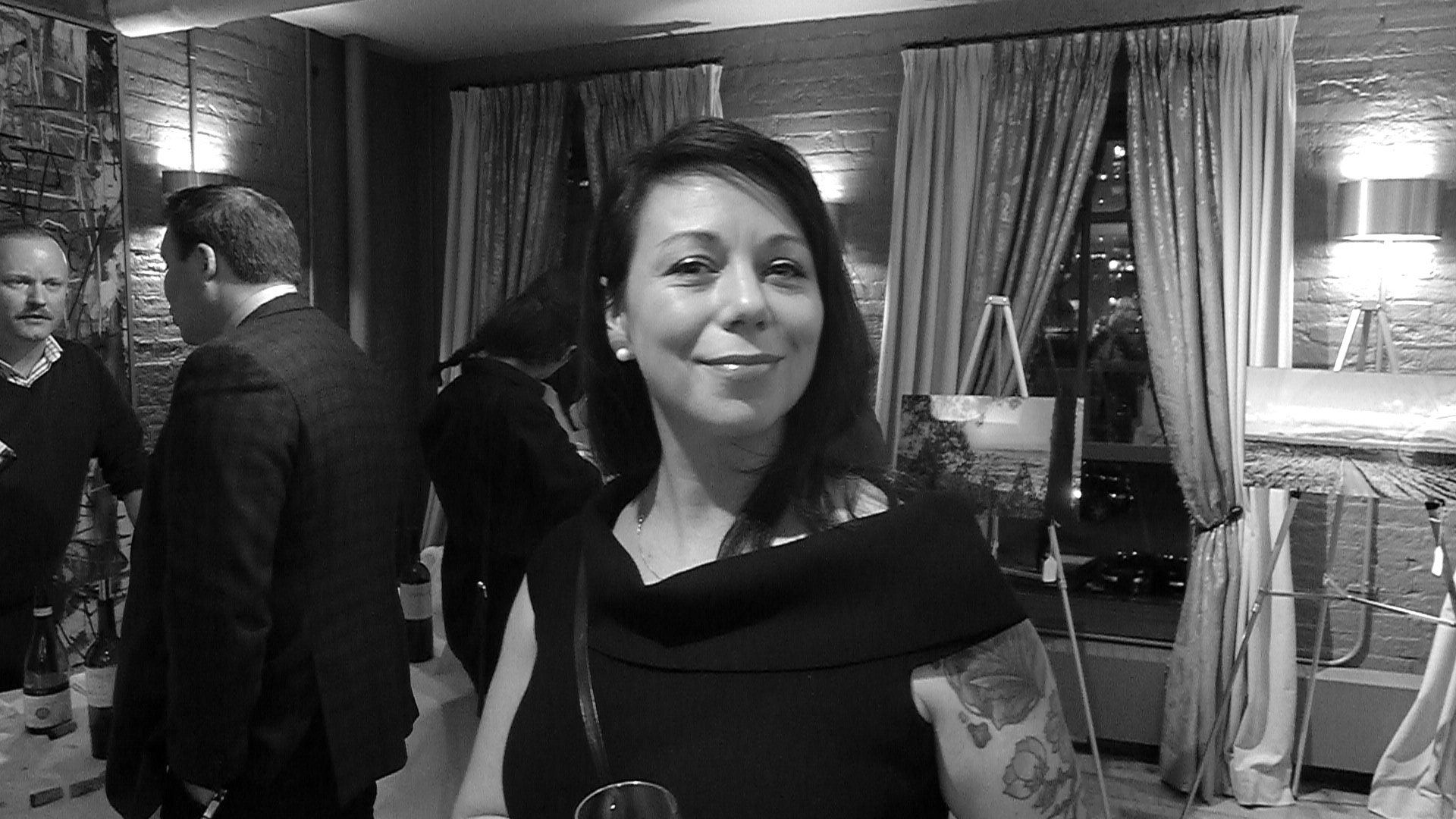
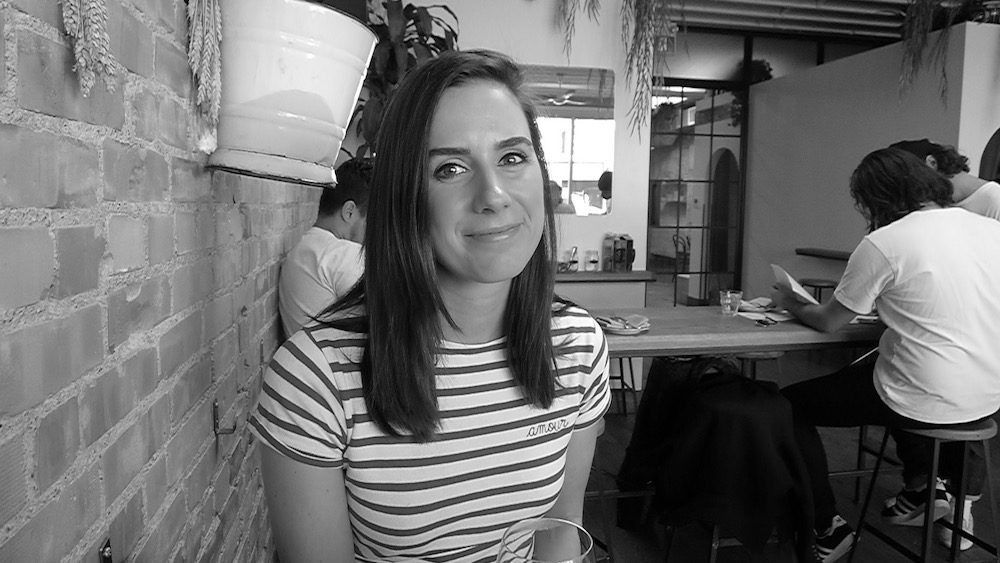

A most interesting interview. Clever, informative, and amusing.